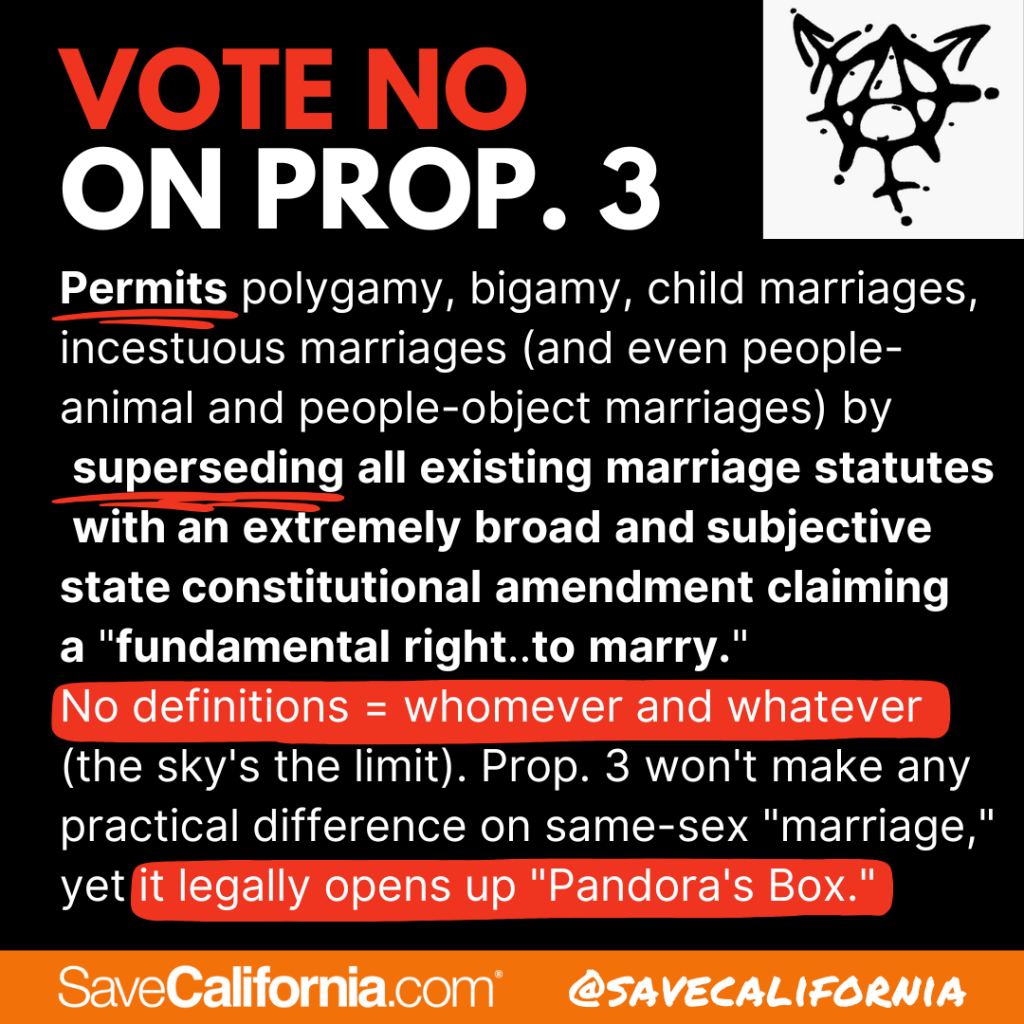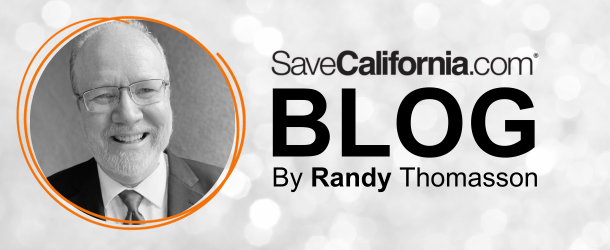
It’s a fact that federal courts — in California and nationwide — have legalized same-sex marriage.
Another fact is, that if someday in the future, the U.S. Supreme Court ruled states can decide on same-sex marriages, California’s 2010 Perry v. Schwarzenegger U.S. district court decision would contribute to still considering same-sex marriages valid and recognized in California.
Likewise, other rulings from the California Supreme Court — In re Marriage Cases in 2008 decided that the Prop. 22 statutory initiative passed by the voters in 2000 (which banned same-sex marriage) violated the California State Constitution, and 2009’s Strauss v. Horton ruling declaring same-sex marriages already licensed have perpetual, legal validity — mean same-sex marriage isn’t going away in California.
So why is Proposition 3 on California’s November 2024 ballot? Legislators who voted last year (78 Democrats and 10 Republicans) to place it on the ballot claim it’s only about same-sex marriage. But is that how it reads or, more importantly, what it would do?
Prop. 3’s eight very subjective and broadly-applicable words to be inserted into the State Constitution are “The right to marry is a fundamental right.” Now, do you see a limit on number of spouses, an age prerequisite, or a requirement that a spouse be human? And do you see any prohibition of incestuous marriages or multiple simultaneous marriages? They’re not there.
Why wasn’t Prop. 3 written to say marriages of “any two adults” is valid or recognized in California? Because they know same-sex marriage is secure in California, but wanted to deceptively create marriage anarchy, including polygamy, bigamy, child marriages, incestuous marriages — even marriages with animals and objects. Because leftists didn’t want limits!
If Prop. 3 passes, the California Constitution would declare “a fundamental right…to marry,” with no definitions, standards, or limits. And whatever’s part of the state constitution that conflicts with California statutes (such as the Family Code or Penal Code) supersedes these regular laws.
Stop and realize all it takes is a lawsuit in state court claiming a constitutional right to “marry” whomever or whatever. If and when those lawsuits using Prop. 3 begin, very quickly, all the marital definitions, standards, and limits you’re used to would be eliminated — all because Prop. 3 renders them unconstitutional.
Once you understand the power of a state constitutional amendment and the Prop. 3’s deceptive language, what’s the real agenda of this purposefully deceptive legislative ballot measure?
Prop. 3’s eight subjective words would permit:
• Polygamy, where a few or several people all marry each other.
• Bigamy, where a person has two or more spouses simultaneously.
• “Child marriages” — where an adult and a child marry — when the courts rule PROP 3 eliminates the age of consent in the California Family Code.
• Incestuous marriages (between parents and children, between grandparents and children or grandchildren, between siblings, and between uncles or aunts and nieces or nephews).
• Marriages with animals or objects, because PROP 3 doesn’t require a spouse to be human.
What’s more, multiple spouses and spousal exemptions will greatly undermine the concept of fairness, a child’s best interest, and law and order:
• Who’s responsible for paying child support could be very confusing.
• Who’s covered by insurance and who are insurance beneficiaries could be very messy.
• With many “spouses,” who would make decisions for a comatose or otherwise incapacitated person?
• Financial manipulation could occur, as wealthy, elderly persons “marry” their children in order to avoid payment of inheritance taxes.
• Gang members — in and out of jail or prison — could all “marry” each other in order to avoid having to testify against their “spouses.”
These are just some of the problems Prop. 3 would usher in. If you dislike the thought of child brides, incest, polygamy, and animal abuse…if you oppose deceptive legislators…if you reject chaos-causing proposals…you’ll want to vote NO on Prop. 3’s marriage anarchy. And please tell everyone you know why they should vote NO.
Fundamental rights are a group of rights that have been recognized by the Supreme Court as requiring a high degree of protection from government encroachment. These rights are specifically identified in the Constitution (especially in the Bill of Rights) or have been implied through interpretation of clauses, such as under Due Process. These laws are said to be “fundamental” because they were found to be so important for individual liberty that they should be beyond the reach of the political process, and therefore, they are enshrined in the Constitution. Laws encroaching on a fundamental right generally must pass strict scrutiny to be upheld as constitutional.
“Fundamental Right,” Legal Information Institute, Cornell Law School




 RSS 2.0 Feed
RSS 2.0 Feed